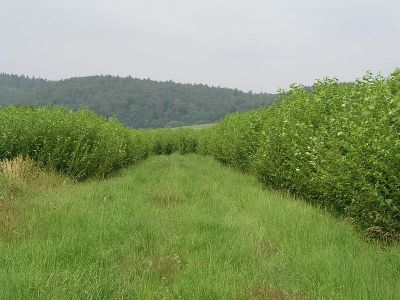Novel solutions for forest biomass supply

Cottonwood and forest, fot. By SuSanA Secretariat [CC BY 2.0
An EU-funded project is working on providing machinery, transport and information technology solutions to enhance the woody feedstock supply chain in Europe.
The EU 2020 climate and energy strategy partly relies on increasing the use of forest biomass for providing a renewable alternative to fossil fuels. The project 'Innovative and effective technology and logistics for forest residual biomass supply in the EU' (INFRES) is opening new paths to EU renewable energy targets by offering solutions that increase the efficiency of biomass supply.
In particular, INFRES is developing innovative technological and logistics solutions for new harvesting, transport and storage technologies. Advances should benefit the heating, power generation and biorefining industries.
INFRES is seeking new fuel-efficient solutions e.g. for wood chippers to decrease fossil energy input by 20 % in the forest biomass supply chain. With its novel logistics management tools, it targets reduction of raw material losses in addition to carbon dioxide emissions of feedstock supply. Through use of larger chip trucks that can take up to 90 tonnes, the project is driving down biomass transport costs. Furthermore, hybrid technology in wood chippers is reducing fuel consumption.
Based on detailed technology assessments and logistics analysis, project partners have found that optimised drying of stored biomass leads to increased economic benefits. Findings enable optimal delivery timing, for example material chipping and transport when it is dry enough. Studies concerning the quality of the stump-derived woodchip showed that a great amount of sand and soil can be removed, thus enhancing transport efficiency.
Project machinery has been demonstrated in real working environments in different parts of Europe. Examples include chippers, energy wood felling heads, new harvesting patterns, residue forwarding and terminal chipping. To ensure sustainable development, INFRES has elaborated the ecological, economic and social impact of the new solutions. Scenarios for different fuel sources, methods, technologies and transport distances have been included.
Mobilising residual forest biomass for energy has been estimated as an efficient path to reach ambitious EU climate and energy goals. Sustainable and reliable supply of feedstock is thus a crucial factor for the long-term perspective of biomass-based technologies, also enhancing the European economy's competitiveness.
published: 2015-04-16